 W
WJost Amman was a Swiss-German artist, celebrated chiefly for his woodcuts, done mainly for book illustrations.
 W
WTheodore Bibliander was a Swiss orientalist, publisher, Protestant reformer and linguist. Born Theodor Buchmann in Bischofszell, he studied Latin under Oswald Myconius, and Greek and Hebrew under Jakob Ceporin, and attended lectures in Basel between 1525–7 given by Johannes Oecolampadius and Konrad Pelikan. He also became familiar with the Arabic language and other languages from the East; he became a professor of theology. He published a Hebrew grammar in 1535, and commentaries on the Bible. He published the first printed edition of the Qur'an in Latin, based on the medieval translation of Robert of Ketton. The edition included Doctrina Machumet, a translation of the Arabic theological tract known as the Book of a Thousand Questions. Considered the father of biblical exegesis in Switzerland, Bibliander became involved in a doctrinal controversy with Pietro Martire Vermigli over predestination; he was removed from his theological professorship at the Carolinum academy in 1560. He died of the plague.
 W
WJakob Christoph Blarer von Wartensee was a Bishop of Basel and a leader in the Counter-Reformation in the region around Basel.
 W
WAmbrosius Blarer was an influential Protestant reformer in southern Germany and north-eastern Switzerland.
 W
WJörg vom Haus Jacob, commonly known as George Blaurock, was an Anabaptist leader and evangelist. Along with Conrad Grebel and Felix Manz, he was a co-founder of the Swiss Brethren in Zürich, and thereby one of the founders of Anabaptism.
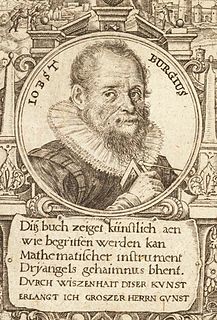 W
WJost Bürgi, active primarily at the courts in Kassel and Prague, was a Swiss clockmaker, a maker of astronomical instruments and a mathematician.
 W
WWilliam Farel, Guilhem Farel or Guillaume Farel, was a French evangelist, Protestant reformer and a founder of the Reformed Church in the Principality of Neuchâtel, in the Republic of Geneva, and in Switzerland in the Canton of Bern and the Canton of Vaud. He is most often remembered for having persuaded John Calvin to remain in Geneva in 1536, and for persuading him to return there in 1541, after their expulsion in 1538. They influenced the government of Geneva to the point that it became the "Protestant Rome", where Protestants took refuge and non-Protestants were driven out. Together with Calvin, Farel worked to train missionary preachers who spread the Protestant cause to other countries, and especially to France.
 W
WJohann Froben, in Latin: Johannes Frobenius, was a famous printer, publisher and learned Renaissance humanist in Basel. He was a close friend of Erasmus and cooperated closely with Hans Holbein the Younger. He made Basel one of the world's leading centres of the book trade. He passed his printing business on to his son, Hieronymus, and grandson, Ambrosius Frobenius.
 W
WChristoph Froschauer was the first printer in Zurich, notably for printing the Froschauer Bible, the Zwinglian Bible translation. His workshop is the nucleus of the Orell Füssli publishing house.
 W
WConrad Grebel, son of a prominent Swiss merchant and councilman, was a co-founder of the Swiss Brethren movement.
 W
WRudolf Gwalther (1519–1586) was a Reformed pastor and Protestant reformer who succeeded Heinrich Bullinger as Antistes of the Zurich church.
 W
WLudwig Haetzer was an Anabaptist.
 W
WBerchtold Haller was a German Protestant reformer. He was the reformer of the city of Bern, Switzerland, where the Reformation received little to none opposition.
 W
WKlaus Hottinger was a shoemaker born in Zollikon. A disciple of Zwingli, he took part in the famous "Affair of the Sausages" of 1522 which marked the public beginning of the Reformation in Switzerland. In 1523 he overthrew a wooden crucifix at Stadelhofen on the outskirts of Zurich. He was as a consequence banished from the canton in November 1523. He was executed in Lucerne on 9 March 1524, despite Zurich's effort to intervene on his behalf, and thus became the first martyr of the Swiss Protestant movement.
 W
WLudwig Lavater was a Swiss Reformed theologian working in the circle of his father-in-law, Heinrich Bullinger. He served as Archdeacon at the Grossmünster in Zurich and briefly Antistes of the Zurich church as the successor of Rudolf Gwalther.
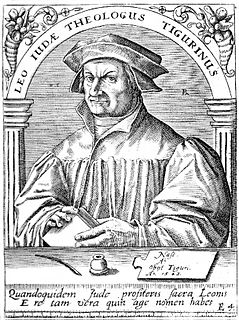 W
WLeo Jud, known to his contemporaries as Meister Leu, was a Swiss reformer who worked with Huldrych Zwingli in Zürich.
 W
WFelix Manz was an Anabaptist, a co-founder of the original Swiss Brethren congregation in Zürich, Switzerland, and the first martyr of the Radical Reformation.
 W
WWolfgang Musculus, born "Müslin" or "Mauslein", was a Reformed theologian of the Reformation.
 W
WOswald Myconius was Swiss Protestant theologian and Protestant reformer. He was a follower of Huldrych Zwingli.
 W
WJohannes Oecolampadius was a German Protestant reformer in the Reformed tradition from the Electoral Palatinate. He was the leader of the Protestant faction in the Baden Disputation of 1526, and he was one of the founders of Protestant theology, engaging in disputes with Erasmus, Zwingli, Luther and Martin Bucer. Calvin adopted his view on the eucharist dispute.
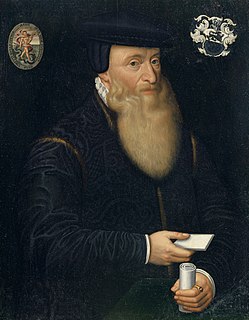 W
WJohannes Oporinus was a humanist printer in Basel.
 W
WKonrad Pellikan was a German Protestant theologian, humanist, Protestant reformer and Christian Hebraist who worked chiefly in Switzerland.
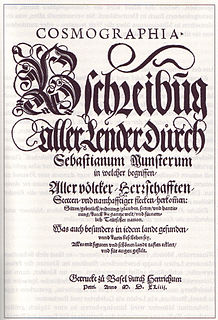 W
WHenricus Petrus (1508–1579) and his son Sebastian Henric Petri headed the printer shop of Basel, called Officina Henricpetrina.
 W
WLudwig Pfyffer was a Swiss military leader, spokesman for Roman Catholic interests in the cantons, chief magistrate of Lucerne, and probably the most important Swiss political figure in the latter half of the 16th century.
 W
WMatthäus Schiner was a bishop of Sion, Cardinal and diplomat. He was a military commander in several battles in northern Italy.
 W
WJosias Simmler was a Swiss theologian and classicist, author of the first book relating solely to the Alps.
 W
WJohann Stumpf was an early writer on the history and topography of Switzerland.
 W
WSimon Sulzer was a Reformed theologian, Reformer, and Antistes of the Basel church.
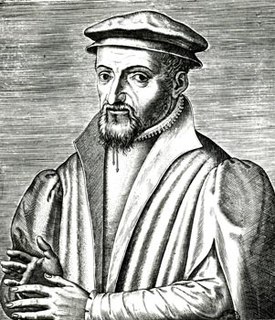 W
WPierre Viret was a Swiss Reformed theologian and Protestant reformer.
 W
WJohann Jakob Wick was a Protestant clergyman from Zürich.
 W
WJohannes Wolf (1521–1572) was a Swiss Reformed theologian.
 W
WKatharina von Zimmern, also known as the imperial abbess of Zürich and Katharina von Reischach, was the last abbess of the Fraumünster Abbey in Zürich.